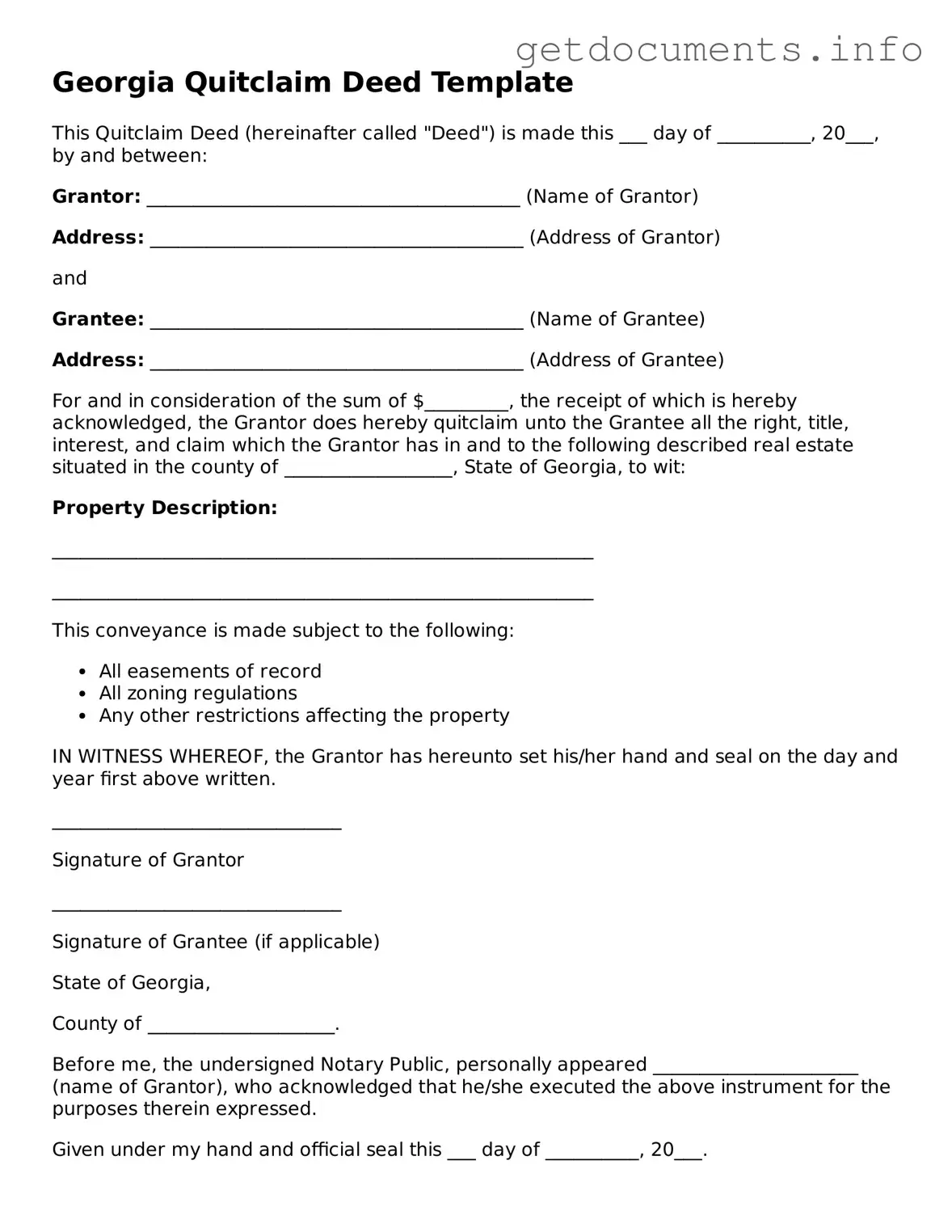Free Quitclaim Deed Template for Georgia
A Georgia Quitclaim Deed is a legal document that allows a property owner to transfer their interest in real estate to another party without making any guarantees about the title's validity. This type of deed is often used in situations where the parties know each other well, such as between family members or friends. If you're ready to transfer property ownership, click the button below to fill out the form.
Access Quitclaim Deed Editor

Free Quitclaim Deed Template for Georgia
Access Quitclaim Deed Editor
Got places to be? Complete the form fast
Fill out Quitclaim Deed online and avoid printing or scanning.
Access Quitclaim Deed Editor
or
⇩ PDF File
